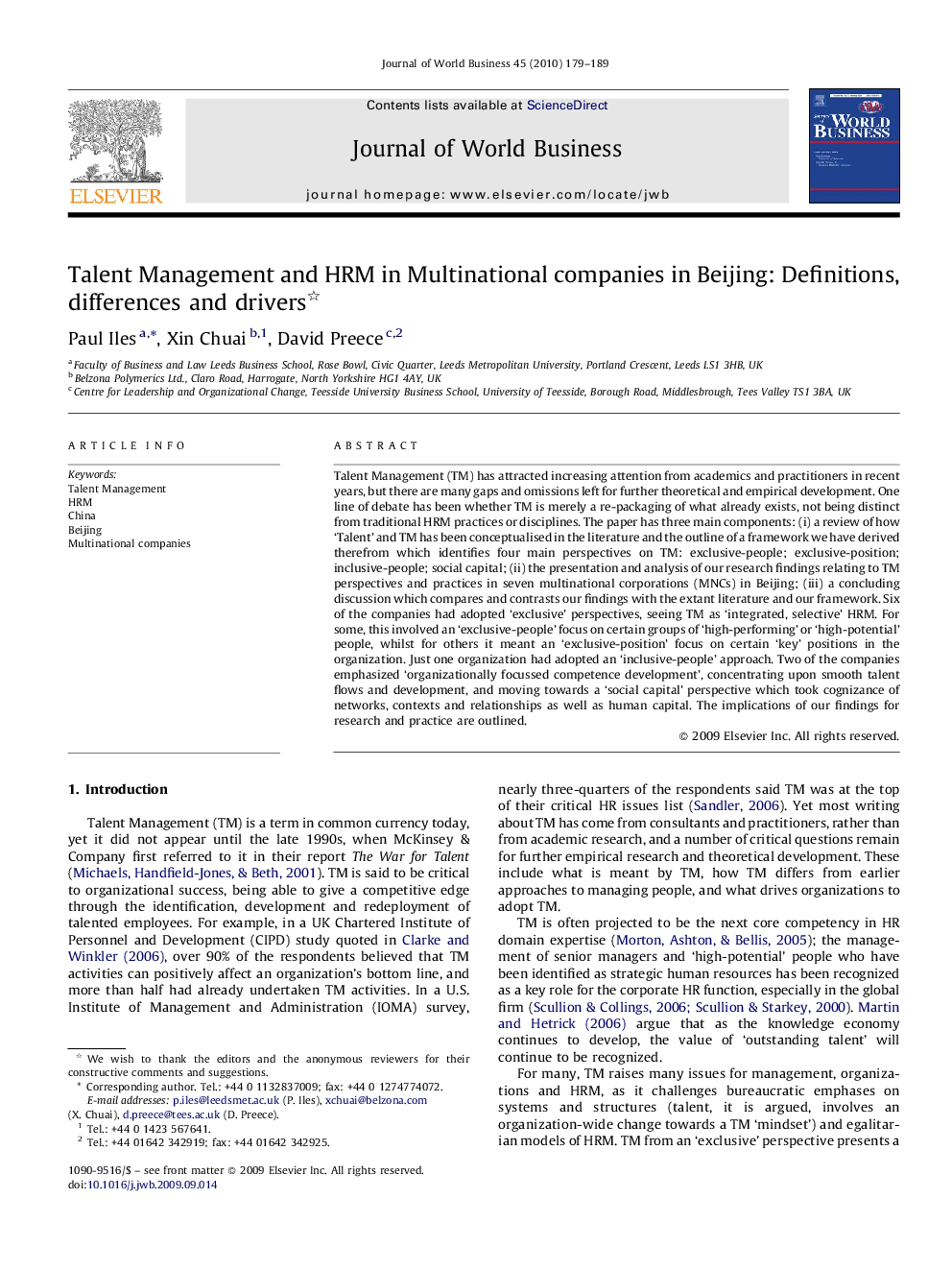| Article ID | Journal | Published Year | Pages | File Type |
|---|---|---|---|---|
| 1003373 | Journal of World Business | 2010 | 11 Pages |
Talent Management (TM) has attracted increasing attention from academics and practitioners in recent years, but there are many gaps and omissions left for further theoretical and empirical development. One line of debate has been whether TM is merely a re-packaging of what already exists, not being distinct from traditional HRM practices or disciplines. The paper has three main components: (i) a review of how ‘Talent’ and TM has been conceptualised in the literature and the outline of a framework we have derived therefrom which identifies four main perspectives on TM: exclusive-people; exclusive-position; inclusive-people; social capital; (ii) the presentation and analysis of our research findings relating to TM perspectives and practices in seven multinational corporations (MNCs) in Beijing; (iii) a concluding discussion which compares and contrasts our findings with the extant literature and our framework. Six of the companies had adopted ‘exclusive’ perspectives, seeing TM as ‘integrated, selective’ HRM. For some, this involved an ‘exclusive-people’ focus on certain groups of ‘high-performing’ or ‘high-potential’ people, whilst for others it meant an ‘exclusive-position’ focus on certain ‘key’ positions in the organization. Just one organization had adopted an ‘inclusive-people’ approach. Two of the companies emphasized ‘organizationally focussed competence development’, concentrating upon smooth talent flows and development, and moving towards a ‘social capital’ perspective which took cognizance of networks, contexts and relationships as well as human capital. The implications of our findings for research and practice are outlined.
